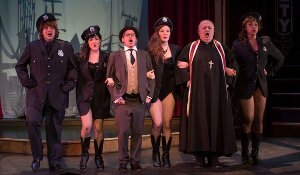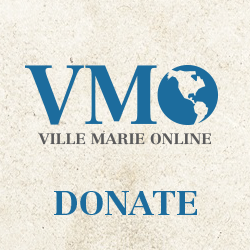
Will there be a “Cardinal Frances” from Pope Francis?
By Alan Hustak
Pope Francis will hold his first consistory of cardinals in February at which time he is expected to name a dozen new cardinals. There is widespread speculation that he will do so from outside the curia, the bureaucrats who run the church, which he has described as “the leprosy of the Vatican.” The London Sunday Times reports that the Pope will break with tradition, and hold the consistory four months ahead of schedule.
“The move is typical of him, and it is brilliant because he has created expectations. He won’t disappoint,” said French cardinal Paul Poupard, who has known Francis for more than 30 years. “It isn’t the United Nations,but you can legitimately expect that Francis will ensure the sacred college reflects to a greater extent the global nature of the church.” When Pope Benedict last appointed his cardinals, 7 of 16 were Italians. Europe dominates the College of Cardinals although it only has about a quarter of the world’s Catholics. Among the names being bandied about are Mario Poli, who succeeded Francis as Archbishop of Buenos Aires and Orani Tempesta, Archbishop of Rio de Janerio.
There is also an outside chance that the Pope may name the first female cardinal, following his recent call for “more space for a more inclusive female presence in the church.”
Canada traditionally has three cardinals, two from Quebec and one from Toronto. That may change now that Cardinal Turcotte has retired and Cardinal Ouellet is based in Rome as prefect of the Congregation for Bishops and as president of the Pontifical Commission for Latin America.
Political and economic power in Canada has decidedly shifted to the west but the Vatican has yet to acknowledge the fact. Demographics alone bolsters the case for a cardinal from the west. According to Reginald Bibby, a professor of sociology at the University of Lethbridge who has been tracking religious trends in the country for four decades, the church is an increasingly prominent player in the West. Twice as many Roman Catholics in Western Canada go to Mass on Sunday than do Catholics in Quebec: 43 per cent in the west compared to 20 per cent in Quebec.
There has never been a cardinal from the region.
George Bernard Flahiff , the archbishop of Winnipeg was given the red galero in 1969 but Manitoba isn’t considered a Western Canadian province - at least not by people who live in Saskatchewan, Alberta or British Columbia. Quebec, perhaps because of its religious roots, has traditionally been top heavy with cardinals. Eleven of Canada 16 cardinals have come from the province. This time the pope may recognize Western Canada’s growing ascendency in national affairs.
When Canada became a country in 1867 it had no influence at the Vatican at all. Cardinal Lodovicio Jacobini, secretary of state of the Roman curia, spent so much time dealing with the fight between ultramontanes and in Quebec that he was often described as “Canada’s cardinal.”
Canada didn’t get its first cardinal until 1886 when Leo XIII elevated Elzear Taschereau who, because he was bishop in Quebec City, was primate of Canada. As a sop to Montreal, the diocese of Quebec was subdivided at the same time and Montreal was given its own archbishop, Edouard Fabre. It took another 60 years before Pope Pius XII recognized English-speaking Canada and elevated Toronto’s archbishop,James McGuigan, as cardinal. Ironically, McGuigan had been archbishop of Regina before he was moved to Toronto. Similarly, Thomas Collins, who had been archbishop of Edmonton for eight years, was moved to Toronto before he was made a cardinal.
There are certainly no shortage of candidates in Western Canada. Vancouver’s archbishop Michael Miller would be an ideal prince of the church.. He has worked in the Vatican as secretary of the Congregation for Catholic education and has been a senior official of the Roman Curia. He is fluent in Spanish, Italian and French, and is a specialist on modern papal teaching.
In his recent papal pronouncement, The Joy of the Gospel, Francis has indicated his intention to wrest power away from the Vatican. He argued that “excessive centralization complicates the life of the church and its missionary work.”
“I prefer a church which is bruised, hurting and dirty because it has been out on the streets, rather than a church which is unhealthy from being confined and from clinging to its own security,” he writes.
He has already started making changes with the the appointment of his G8-panel of cardinals who will advise him on how best to introduce reforms.
“Francis does not have an agenda of specific reforms in mind,” says Rev. Antonio Spadaro, a Jesuit who is doing a book on the Pope, “He has his feet firmly planted on the ground. He does not live in an ivory tower.”
Spadaro is quoted as saying the Pope is surprised by the impact he has made in so short a time.
“As we talked, I said to the Pope that I felt as if we are sitting on a volcano, because of his energy. He smiled for a moment, and said, ‘It is not me who is filling the piazzas. The Lord’s wind is blowing stronger right now.”
Last Night at the Gayete

|
|
|
|
|
|
The Centaur Theatre's - season is drawing to a close with its final production of Last Night at the Gayety, a musical comedy by Bowser & Blue which runs until May 22nd. |
|
|


